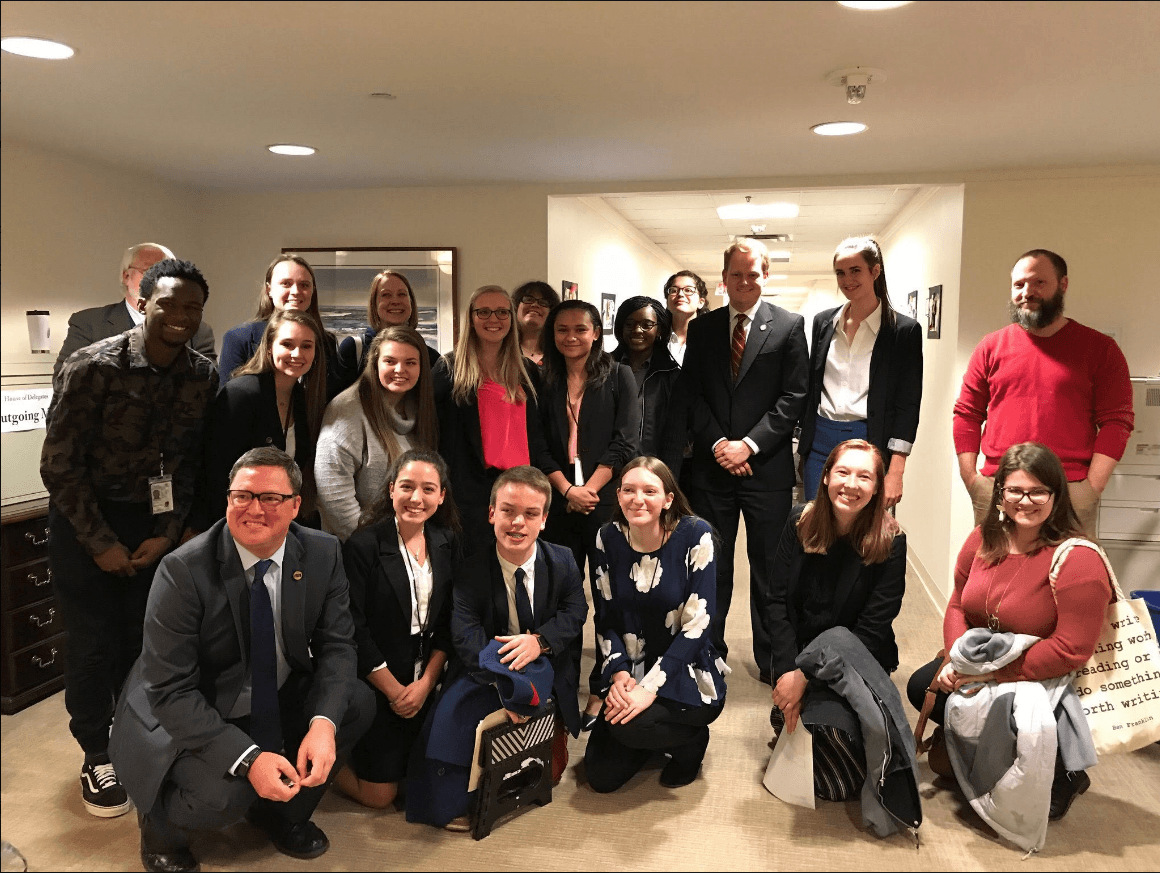General Assembly Committee fails young journalists
4 min read
Student Press Law Center
By GINNY BIXBY
Associate Editor
As a representative for the Blue and Gray Press editorial board, I was asked by the Student Press Law Center to speak in front of the Virginia General Assembly on Jan. 28. I prepared a testimony in support of HB #2382, also known as the New Voices Bill. The bill, which was introduced by former journalist Del. Chris Hurst (D- Blacksburg), was struck down in committee, having tied 3-3. The bill should have passed, and the way it was handled in committee certainly contributed to its failure.
This bill, as introduced to House Education subcommittee #1, was proposed to protect student journalists in public schools and universities from censorship. The bill declared that “except in certain limited circumstances, a student journalist at a public elementary or secondary school or public institution of higher education has the right to exercise freedom of speech and the press in school-sponsored media, including determining the news, opinion, feature, and advertising content of school-sponsored media, regardless of whether the media is supported financially by the school board, supported through the use of school facilities in the school division, or produced in conjunction with a course or class in which the student is enrolled.” Essentially, this bill would prevent students from being penalized for publishing anything that school administration may object to, as this would be an infringement on students’ First Amendment rights.
However, it was decided by subcommittee chairman Del. Richard P. Bell (R- Staunton) that only three citizens present in support of the bill could give spoken testimony. I was not included in this group, although my written testimony was handed out to the delegates, along with multiple other written testimonies and letters. The delegates were expected to process this printed material while spoken testimony was given, and it would have been impossible for them to process so much information at one time.
My testimony detailed how the Blue & Gray Press was initially denied funding for the 2018-19 school year, but I also focused on the importance of student journalism as a whole, and how giving students more freedom to publish whatever they have written only enhances their education. I wrote in my testimony, “No student should ever be afraid to publish anything they have written, whether it be a well-researched opinion piece or a thorough investigative news story. Universities, and the country as a whole, should value the freedom of the student press because journalism is a key part of our democracy, and participating in it teaches students important life skills. Students learn how to conduct interviews, carry out extensive investigations, form educated opinions, and write in a professional manner. Student journalists have exposed wrongdoing and enacted positive change in their schools.”
I was frustrated that much of the opposition from the public who were present was centered around the idea that students cannot be responsible journalists because they are too young. One speaker went as far as to say that students are not journalists, which is incredibly ignorant, given the history of student journalists making an impact in this country. After the hearing, Del. Hurst spoke to everyone who came to speak in support of the bill, and was quick to refute this statement, saying, “As soon as you are practicing journalism, you are a journalist.”

Additionally, delegates on the committee brought up questions about how dangerous this bill could be if kindergartners were allowed to publish whatever they wanted in a student paper. Frank LaMonte, the SPLC’s senior legal fellow, countered that he had been working in student press law for over thirty years and had never encountered a case of elementary school press censorship, arguing that this was an issue that primarily high school and college students faced.
If Del. Bell, who voted against the bill, had allowed more of us to speak, I believe we would have been able to fully show the human side of this issue. It is ridiculous that these bills, that take years to work on, are barely given fifteen minutes of time in committee. Over two dozen people traveled from all over Virginia and even across the country to speak in support of this bill, and were not given the chance. The reality is, this issue affects far more than three people. This reflects a larger issue in how our government is run. Legislators are supposed to listen to their constituents, and we were not listened to by all members of this committee.
While the bill did not pass, I was proud to stand among the majority in the room who were in favor of the bill- an incredible group of students, teachers, lawyers, and journalists who work tirelessly to protect our First Amendment rights. I met an amazing UMW alumna who is now a newspaper advisor at a Virginia high school. While it was upsetting to feel that we were not completely heard, it was incredible to spend time with people who have been in the same position I have been in and have the same passion for journalism and the freedom of the press that I do.
Del. Hurst said he plans to work on the bill, which he worked on with co-patron Del. Danica Roem (D- Prince William County), and reintroduce it to the committee next year.
I am grateful for the opportunity to share my voice, even if it was limited, and as Del. Hurst said, we should not be discouraged. We will not let the censors win. Buy a newspaper. Write a letter to your legislator. Journalism is the cornerstone of our democracy, and we cannot be free without it.


